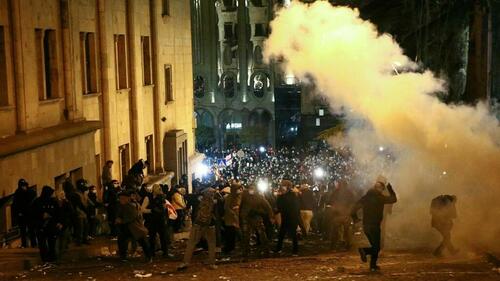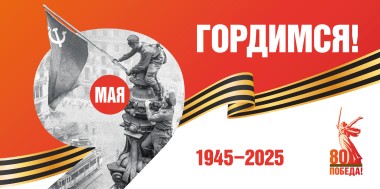The presence of representative authorities in the Republic of South Ossetia is stipulated by the Constitution of the Republic of South Ossetia; however, in fact such bodies do not exist. I would like to briefly recall the historical and socio-political conditions in which the cessation of their activities took place.
In 1991, the leadership of the Georgian Soviet Socialist Republic, in violation of the Constitution of the USSR pursuing a course of illegally changing the existing system and taking a separatist stance against the USSR, initiated the genocide of the people of South Ossetia in connection with the fact that the people of South Ossetia wished to remain faithful to the state, as part of which were both South Ossetia, and Georgia - to the Soviet Union. In special measures as part of the genocide ( the burning of Ossetian villages, the massacres of Ossetian villagers, the appropriation and distribution of their livestock and other property, etc.) were involved armed units of the Ministry of Internal Affairs of the Georgian SSR, and specially created Georgian illegal armed groups.
Later, the troops of the State Council of Georgia joined them. Now the Georgian propaganda is trying to create an opinion that the State Council troops did not participate in attacks on Ossetian villages, but this is not true. They also participated in thoseatrocities.
In total, in South Ossetia by 1989, there were 364 Ossetian, Georgian and mixed villages. Of these, the Ossetian population was expelled from most of the mixed villages (and, for example, in villages north of Tskhinval it reached 40 percent). 117 Ossetian villages were burned and looted. Moreover, in some villages (Khelchua, Tliakana and some others), civilians were locked and burned in their homes. The Znaur district was subjected to constant military attacks, Dzau district center was completely destroyed by the earthquake unprecedented in our region, and the Leningor district center turned out to be under the control of armed detachments of state criminals who rejected the Constitution of the USSR and Soviet legislation in full volume and proclaimed the separation of the Leningor district from South Ossetia.
In such circumstances it was impossible the functioning of the local representative authorities of South Ossetia. Soon the USSR collapsed. Peacekeeping forces were introduced into South Ossetia. But local authorities still did not really function. Attacks by armed groups ceased, but most of the territory of the Leningor district continued to be under the control of Georgia, most of the deputies of the district council came over to the Georgian side and the district council did not function. The district councils of Tskhinval, Dzau and Znaur districts were not functioning, too. This situation continued until 1993 when the then Chairman of the Supreme Council of the Republic of South Ossetia Torez Kulumbegov signed a resolution to suspend the activities of local representative authorities and introducing instead of them the institution of "temporary acting heads of the provisional administration of local self-government", which were to be appointed by the Chairman of the Supreme Council.
This decision on the air of the independent television of South Ossetia was sharply criticized by some deputies and even ...by the newly appointed "acting ones". One of them emotionally said: "I am twice temporary! This is absurd. "Some called the innovation a "coup d'état", since the local executive powers expanded their powers at the expense of the representative ones.
So eight years passed. In 2001, the people of the Republic of South Ossetia on the referendum adopted a new Constitution, which also provided for local representative bodies of power. However, in the past sixteen years since 2001, they have not been created.
Meanwhile, as I have repeatedly noted in several of my statements in the media over the past years, local representative bodies of South Ossetia are needed. There are many reasons for this and it is hardly appropriate to describe them in detail in a small article. However, it is worth noting such an indisputable argument as to enhance flexibility and the efficiency of the state power. The second weighty .argument - experience has shown the low efficiency of such a system, when thousands of large and small problems of the district were shouldered on one person.
The revival of representative bodies of power is a real revolution. For the first time it was taken real and concrete step towards the activation of constitutional provisions,, which did not function for more than a quarter of a century!
At the present stage, it is fully justified to returning to this constitutional norm cautiously. I also consider to be fair the choice of the high-altitude town of Kvaysa for this purpose, because it was one of the traditional centers of culture, of the intelligentsia of South Ossetia (it is necessary to return this status to the town!) and the-residents of Kvaisa are distinguished by high political literacy and social activity.
Of course, when introducing bodies of representative power, it should be provide for many things: what should be the powers of deputies, the mechanism of election, their recall, and much more. One should not be afraid of mistakes. If these authorities start working, then mistakes will begin to occur, and they will have to be eliminated, as they say, on the go.
The experiment has started; we wish it to be successful.
Authorship:
Inal Pliev, political observer






